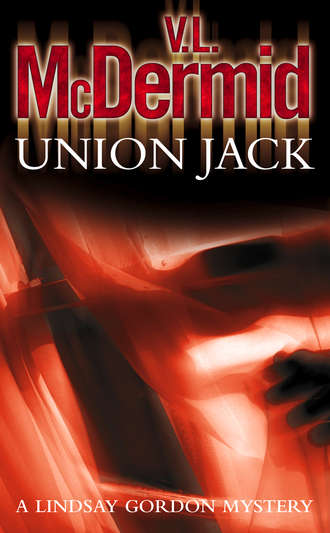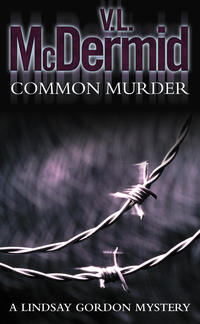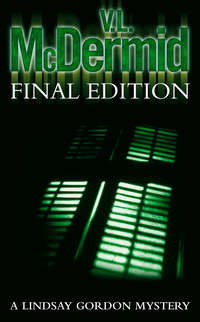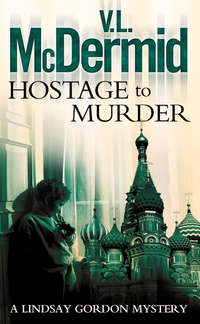
Полная версия
Union Jack
Laura pulled herself clear. ‘You’re dripping beer on my suit. I doubt you earn enough to have it cleaned, never mind replaced. Now piss off,’ she hissed.
The man dropped his arm as if he’d been stung. He backed away, his face a mask of shock.
Laura finished her drink slammed the glass down on the bar. ‘What a waste,’ she said bitterly. ‘What a bloody, bloody waste.’
‘I know,’ Lindsay persisted. ‘I can’t believe it either. I can only imagine how much worse it is for you.’
‘Can you?’ Laura asked dangerously. ‘Can you? Sure you’re not just fishing for an angle for your story, Lindsay?’
Lindsay clocked the look of shock on Shaz’s face, and suspected it was mirrored on her own. ‘For Christ’s sake, Laura,’ she protested.
‘How come you didn’t make it to the hospital like the rest of the pack, Lindsay? Oh, of course! You came in Ian’s car, didn’t you? You didn’t have any wheels to get there. Well, you missed a great show. Your cronies were in fine form. “How do you feel, Laura? What was the last thing he said to you, Laura? What was he really like, Laura?”’ she mimicked. ‘My God, to think my job puts me on the same side as you vultures!’ Laura turned away and signalled to the barman. ‘Just a double this time, please.’
Lindsay moved forward, shaking off Shaz’s restraining arm. ‘Whatever you might think, Laura, I’m not interested in sneaking a couple of juicy quotes out of you. Ian was my friend, and in case you hadn’t noticed, you don’t have a monopoly on grief.’ She spoke softly, but there was no mistaking her sincerity.
Laura turned to face Lindsay and looked her up and down. ‘My god,’ she said, her drawling voice heavy with contempt. ‘I thought you were as bad as the rest of the vultures. I was wrong. You’re a hundred times worse. You stand there, trading on the fact that Ian was too soft-hearted to treat you with the contempt you deserved. Have you any idea how much it pissed him off to have you hanging round, always badgering him with questions, thrusting your bloody grief down his throat? And now you stand there with your crocodile tears like he was something to you. Christ! You should get a T-shirt printed. Lindsay Gordon, queen of the jackal pack. Just for the record, Gordon, let me tell you that your pathetic posturings of grief made Ian sick. And not just Ian. Let’s face it, no normal person’s going to shed a tear because there’s one less dyke on the planet.’
Lindsay could feel the scarlet tide of anger and embarrassment that swept through her body. She was dimly aware of Shaz’s hand on her arm again. This time she let herself be drawn away from the bitter, bereaved woman at the bar. ‘Come on,’ Shaz said. ‘She doesn’t deserve your support.’
At the door, Lindsay looked back, Laura was still leaning against the bar, the centre of all the other drinkers’ wary attention.
‘I’ll never forgive her that,’ Lindsay said, her voice cold, her face set. ‘I don’t care how shocked she is, she’s gone too far. One day she’s going to regret this.’
PART TWO
Sheffield, April 1993
1
‘Tempting though it is for fringe groups to regard conference as a captive audience, only authorised conference material may be distributed inside the hall itself. Any other leaflets, flyers, etc. will be removed and shredded, thus resulting in needless death to trees. Non-authorised material may be distributed outside the hall, though those distributing it should be warned that hung-over delegates who have unwanted bumf thrust upon them can often react violently. SOS and the Amalgamated Media Workers’ Union can accept no responsibility for any injuries thus caused.’
from ‘Advice for New Delegates’, a Standing Orders Sub-Committee booklet.
The custody sergeant picked up his pen and gave Lindsay a shrewd look of appraisal. ‘Been drinking?’ he asked. It was the first indication he’d given that she wasn’t invisible. The two detectives who had brought her into the police station also turned towards her. She’d listened patiently while they’d informed the sergeant she was required for questioning relating to a suspicious death. The stocky detective sergeant had grumbled at her refusal to say anything, either at the scene of the death or in the car on the way to the station.
In answer to the custody sergeant, Lindsay nodded. ‘I had a few whiskies earlier.’
The custody sergeant nodded grimly. ‘Okay lads, no questions for a couple of hours. Give the lady time to sober up.’
‘No problem. We’ve got plenty to keep us busy back at the scene of the crime,’ the detective constable said.
‘Alleged crime,’ the custody sergeant corrected him absently.
The two detectives shouldered their way past Lindsay. She heard the DS mutter, ‘Bollocks to that,’ as he opened the door.
‘A few details, if you please, miss,’ the custody sergeant said.
‘I’d like a lawyer,’ Lindsay said.
‘Do you know one locally? Or would you prefer me to call the duty solicitor?’
‘The duty solicitor will do fine,’ Lindsay sighed. ‘Thanks.’
The custody sergeant picked up the phone on his desk and dialled a number. Almost immediately, he spoke. ‘Pager number 659511. Please call Sergeant Meadows, Central Police Station. End message.’ He paused. ‘That’s right. Thanks.’ He put the phone down and smiled at Lindsay. ‘Now, while we’re waiting, a few details.’
‘Name, rank and serial number, that sort of thing?’
‘Name, address and fingerprints, more like. And you don’t get Red Cross parcels here, neither.’
The cell they took her to was cold and smelled stale. The solicitor had agreed to come soon, so she could interview Lindsay before the police decided she was sober enough for interrogation. She sat down on the edge of the narrow bed and stretched in a huge yawn. Then, elbows on her knees, she rubbed the sleep out of her eyes with her knuckles. She had sobered up the moment she had realised what the jagged hole in her window meant. But that couldn’t stop the drink taking its physiological toll. Besides, it was nearly six in the morning. She was entitled to feel tired. She should be tucked up in bed, fast asleep, not locked up in some scruffy, dismal cell.
Lindsay began to wonder if leaving her to kick her heels was a deliberate ploy; perhaps they intended her to become more nervous and panicky the longer they left her. Then the voice of realism shouted down the paranoia. She knew how chronically understaffed the police always claimed to be. These guys were investigating what was either a highly dramatic suicide, a mystifying accident or a horrific murder. Maybe they simply had more pressing things to do before they were overtaken by events. After all, they knew she wasn’t going anywhere now.
A dull ache had started behind her eyes. The classic whisky hangover was starting to bite. Lindsay had learned at an early age the technique of drinking large quantities of whisky without becoming either aggressively drunk, maudlin or catatonic. She’d also learned that there was only one way of dealing with the after-effects. Two pints of cold tap-water. Then ten hours sleep followed by a substantial meal – preferably the traditional Scottish New Year’s Day dinner of steak pie, mashed potatoes and peas, followed by sherry trifle.
They did things very differently in California. Now, on the rare occasions when Lindsay had more than a couple of drinks, it was more likely to be white wine spritzers. And the morning after cure consisted of a handful of vitamins washed down with a litre of fizzy mineral water. Lindsay shuddered. She should be kicking down the door of this cell, demanding a lawyer right this minute. Somehow, she just couldn’t summon up the energy. Instead, she swung her feet up on to the bed and lay back. She closed her eyes, placed her hands palm down on the rough blanket and breathed deeply. Area by area, she deliberately relaxed her muscles, mentally repeating, ‘I love and approve of myself, right where I am.’ Within five minutes, the pain had eased.
Cautiously, she opened her eyes. The light in its mesh cage seemed painfully bright, so she closed them again. One of the reasons she’d left Britain was because she’d had one too many close encounters with police interviewing techniques. Because her investigative journalism had once poked the authorities in the eye with a sharp stick, it had become clear to her that she was always going to be top of the list when the command came to ‘round up the usual suspects’. It wasn’t a role she relished. Moving to California might have been a leap into the dark, but at least the cops wouldn’t be breathing down her neck every time something criminal happened within a mile of her.
Their relationship had only just begun to find its rhythm and shape when Sophie had been offered the sort of opportunity that comes along only a couple of times in a consultant gynaecologist’s career. A leading hospital in San Francisco was head-hunting an experienced team to staff a new unit, and Sophie’s work in Glasgow with HIV positive mothers-to-be made her the ideal choice. She had leaped at the chance and Lindsay, only too glad to escape the bitter memories Glasgow now held for her, had chosen to trust enough to go too.
They’d moved into a wood-framed house above the beach, an hour’s drive from the city, with a view of the Pacific that made Lindsay feel instantly at home. The best times in her life had been lived by the sea. First, growing up in a small Scottish village on the Atlantic coast. Later, learning to be a journalist in the cosy picture-postcard world of Cornwall. And later still, escaping from the security services’ awkward questions and restoring herself to sanity in a humble and repetitive daily routine on the Adriatic coast. For the first few weeks in America, she’d been happy to put her mind on hold again while she sanded and sealed floors, stripped and painted woodwork and walls, and learned the basics of surfing. She’d hardly even begun to get to know San Francisco in all its glorious charm. Then suddenly, she’d woken one morning, alert and restless, needing to find something that would give her the same fulfilment that Sophie found in her harrowing role at the hospital.
Strangely, she found it in passing on the very skills she’d declared redundant in herself. Although she knew she could never again be a working journalist, Lindsay had never doubted her abilities. Her background in mainstream newspaper journalism coupled with her single foray into enemy territory, treading on the toes of the security services, made her the ideal choice for the job she landed as a university lecturer in journalism and media studies. Although she’d been apprehensive about moving into the world of higher education, it had been less of a shock to the system than she had anticipated. University life in California couldn’t have been more different from the memories of her own student days at Oxford. Somehow, Lindsay couldn’t imagine her former tutors in Bermuda shorts, playing volleyball at a Sunday afternoon beach barbecue.
The one fly in the ointment was the pressure to pile up qualifications and publications. Publish or be damned was an expression that could have been coined for her new world instead of her old one, Lindsay often thought. But when she’d chosen to write a doctoral thesis researching women’s roles in the trade union movement, she hadn’t expected it to be a straight road back to a police interrogation.
Her thoughts were interrupted by the sound of the door opening. Lindsay’s eyes snapped open and focused on the woman who had just walked in. She was tall to start with, but the three-inch stilettos she had chosen put her near six feet. Her hair was short and neat, emphasising the kind of bone structure that has generated the fashion industry’s demand for striking black models. Her skin was the colour of copper beech leaves in summer. Lindsay took in a pair of sharply tailored trousers in hounds-tooth check, a black matador jacket and a spotless white blouse open at the neck. Lindsay jumped to her feet. ‘You must be my solicitor,’ she said as the woman moved towards her.
The solicitor shook her hand and perched on the edge of the bed. ‘Right. I’m Jennifer Okido,’ she said.
Lindsay shuddered at the thought of how she must appear to this woman who couldn’t have looked less like she’d been dragged out of bed in the middle of the night. ‘Lindsay Gordon,’ she said. ‘Sorry you had to be called out so early.’
‘It’s no problem, Ms Gordon. I’m used to it. There aren’t many firms in the city who do criminal work any longer, thanks to the Legal Aid changes. We’re the largest, and I’m the senior criminal partner. By the way, I’m sorry about this, but we’ll have to talk in here. Since the Strangeways riots, our police stations are so overcrowded with remand prisoners that there are no more secure interview rooms. They’ve all become holding cells. Now, if I can just sort out some details?’ She took a pad from her briefcase and moved swiftly through the formalities. ‘So what brings you back to Britain?’ the solicitor asked.
Lindsay ran a hand through her hair and pulled a wry face. ‘I’m beginning to wonder myself,’ she said. ‘My doctoral thesis is a study of how women have worked within the trade union movement to achieve changes in media attitudes towards them. That’s why I came back for the Amalgamated Media Workers’ Union’s first annual conference. Years ago I used to be active in the Journalists’ Union, which has been swallowed up by the new union, and I needed to talk to people who were involved in the equality struggles of the seventies and eighties. I thought that coming to the conference would be a good way of catching several of them in the same place.’
Jennifer nodded as she jotted notes with a shiny silver fountain pen. ‘And you arrived here when?’
Lindsay closed her eyes and rubbed the bridge of her nose. ‘Monday afternoon,’ she said.
The foyer of Wilberforce Hall was buzzing. But the focus of attention wasn’t the long trestle table where arriving delegates were registered and supplied with their conference packs. It was the photocopied A4 sheets that the earlier arrivals were waving under the noses of their friends and acquaintances as soon as they put their noses across the threshold. As Lindsay joined the queue, the pony-tailed young man behind her was accosted by a woman in her mid-forties.
‘Have you seen this, Liam?’ the woman demanded in a harsh Ulster accent. ‘It’s outrageous! Look what they’re saying about Fearghal O’Donovan!’
Lindsay sneaked a look over the young man’s shoulder as he took the brandished sheet of paper. She read:
Conference Chronicle The Paper Off The Record
When Irish Ayes Are Lying?
Some of us were more than slightly gobsmacked at the turn-out in the election for an assistant general secretary (Ireland) last month. For those of us more familiar with the depressingly low numbers of members who normally vote in elections for fulltime officials, seeing returns of sixty-two per cent was pretty astonishing. And a staggering eighty-nine per cent of them voted for former despatch worker Fearghal O’Donovan.
The reason for O’Donovan’s phenomenal success, however, has more to do with chicanery than popularity. O’Donovan has always performed better in secret ballots than in workplace shows of hands.
The reason for this is that in Irish secret ballots, the ballot papers never actually reach the voters, particularly in the offices of more remote local papers where there is traditionally a low or nonexistent turn-out in union elections.
And in the major newspaper offices where the forms are actually handed out, Fearghal’s cohorts simply make sure they collect up any unused forms, then put the crosses in Fearghal’s box.
What’s in it for them? Well, guess who controls all the highly-paid casual Saturday night-shifts at the Sunday Sentinel? None other than Dermot O’Donovan, brother of the more famous Fearghal.
Of course, Fearghal will deny Conference Chronicle’s claim. Maybe it’s time someone went through the ballot papers and compared how many were filled in with the identical pen and the identical cross.
Lindsay reached the end of the piece ahead of the young man. She couldn’t keep a smile from her lips. There were a lot of journalists who’d be walking round with sanctimonious smirks on their faces when they saw that. All their wild claims about the corruption and nepotism of the traditional print unions would be vindicated by that one anonymous article. The air would be thick with the sound of ‘I told you so’.
‘Sure, they can’t prove a thing, so,’ the young man protested in the softer Dublin accent. ‘They shouldn’t be let away with the likes of this, though. Fearghal’ll be biting the carpet. Where did you get it?’
The woman, red-faced in her anger, said, ‘It was shoved under my bedroom door. Everybody’s got one. It’s a scandal, so it is.’
‘Who’s behind it?’ the young man asked, handing the sheet back as the queue moved forward.
‘It’ll be them bloody journalists, trying to run everything their way. As if it’s not enough that their man got the general secretary job, they have to stoop to telling lies about a decent man who’ll stand up to them.’ She was building up a fine head of steam. Lindsay hoped the woman wouldn’t round on her and demand to know which sector of the union she belonged to.
‘What’s Fearghal saying to it?’ the young man asked.
The woman snorted. ‘Let me tell you, that man’s a saint. He’s gone to see Standing Orders Sub-Committee about an emergency motion to clear his name. And in the face of this,’ she added, waving the offending article, ‘I don’t doubt they’ll see things his way. I’ve never seen the like, not in all my years as a union official. What we’ve got to do is, we’ve got to organise a proper investigation into who’s doing this.’
The young man shrugged. ‘It’d be a waste of time, Brid. Anybody could have done it.’
‘Only someone with access to a photocopier,’ she said triumphantly.
‘Brid, think about it. There must be half a hundred places in a city the size of Sheffield where you can get photocopying done. If it is a journalist, they could have pals on the local paper who are only too happy to run them off copies in the office. Plus, don’t forget, you can get these wee portable ones now, just the size of a briefcase. I bet half the journalists here, if they haven’t got one, they’d know where to hire one from. It’d be like looking for a needle in a haystack.’
‘I don’t know what this union’s coming to,’ the woman said. She continued grumbling, but Lindsay tuned her out, scanning the room for anyone she knew. She was dying to find someone who could fill her in on all the latest gossip. She had enough experience of the internecine warfare of union politics to know that Conference Chronicle would be the one topic of conversation in the bars that night. There would be plenty of candidates for the position of scapegoat, she felt sure.
It was a long time since Lindsay had watched a witch-hunt. This time, she wanted a front row seat.
2
‘Remember conference lasts for a week. Pace yourselves. And remember that fights you pick on Monday night will surely return to haunt you by Friday morning.’
from ‘Advice for New Delegates’, a Standing Orders Sub-Committee booklet.
Jennifer crossed her legs and propped her notepad on her thigh. Lindsay had fallen silent. ‘It would be helpful if you could run through what’s happened since you got here,’ she said, gently.
Lindsay rubbed a hand over her face and muttered, ‘Sorry. I’m shattered. Monday. Well, I hadn’t even signed in before I saw the first issue of Conference Chronicle. The place was jumping. I kept having conversations with people I hadn’t seen for five years that all began, ‘Lindsay! It’s been ages. Have you seen Conference Chronicle?’
* * *
She’d been deep in thought when a loud shriek closely followed by a bear-hug brought her sharply back to the here and now. Kathy Dean, a civil service press officer was bouncing up and down in front of her. ‘Lindsay!’ she yelped. ‘Lindsay Gordon! Is it really you? Hey, no one said you were coming! Are you back for good?’
Lindsay shook her head. ‘Just for conference. I’m only here as an observer.’
Конец ознакомительного фрагмента.
Текст предоставлен ООО «ЛитРес».
Прочитайте эту книгу целиком, купив полную легальную версию на ЛитРес.
Безопасно оплатить книгу можно банковской картой Visa, MasterCard, Maestro, со счета мобильного телефона, с платежного терминала, в салоне МТС или Связной, через PayPal, WebMoney, Яндекс.Деньги, QIWI Кошелек, бонусными картами или другим удобным Вам способом.








